Solar hot water systems are becoming popular in Australia for good reasons! These systems use energy from the sun to heat water, which is used for various purposes in homes and businesses.
Not only are these systems eco-friendly, but they also cut down your power bills year-round. Considering these perks, why not think about making the switch?
As energy costs climb and sustainable living becomes a priority, many are opting for solar hot water systems. In this piece, we’ll dive into the perks of these systems, their workings, and all you need to know about this exciting technology.
How Does A Solar Hot Water System Work?
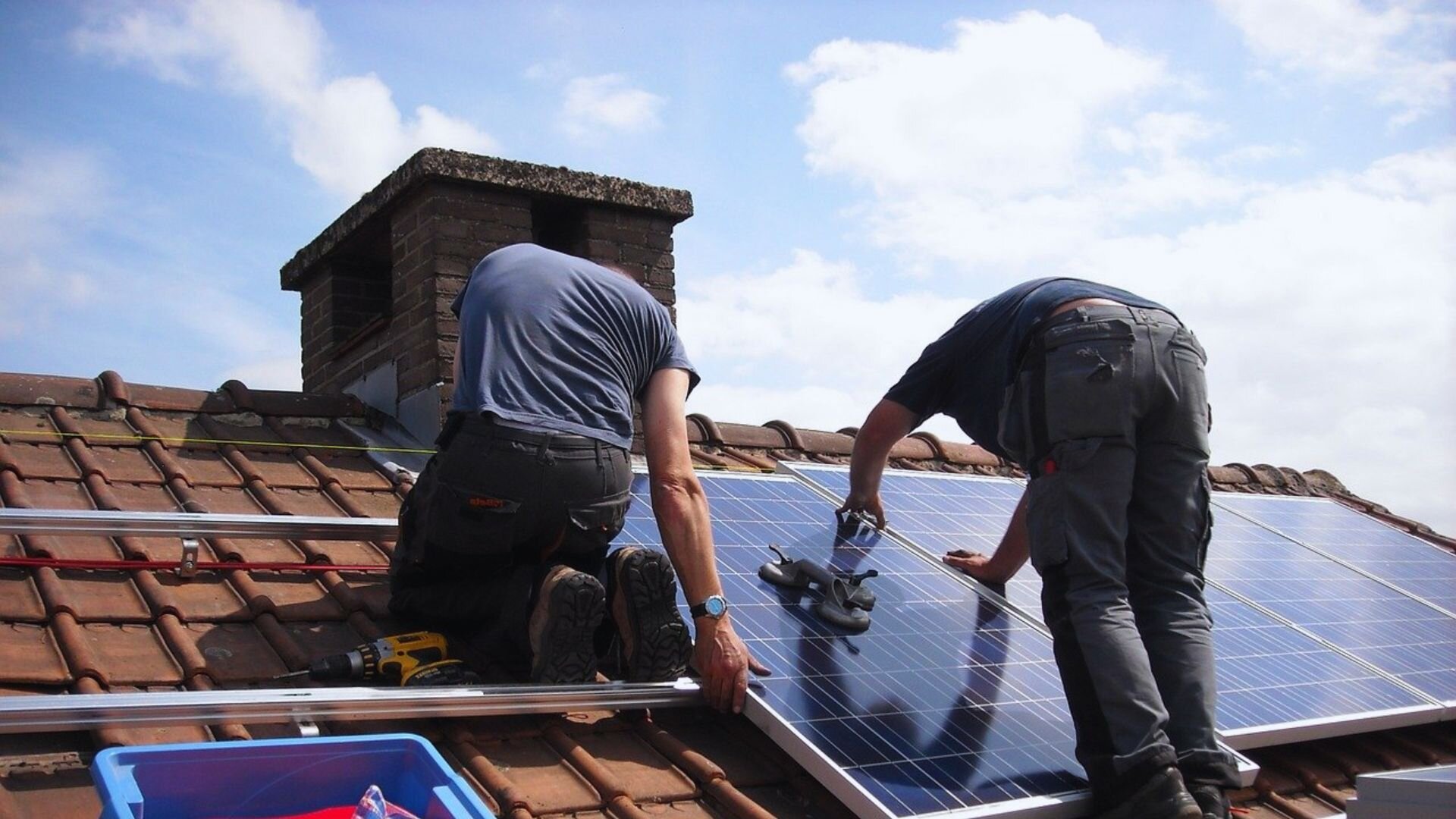
Solar hot water systems work by harnessing solar power to heat water in your home or building. They utilise solar collectors, storage tanks, and a circulation system. Positioned on the roof, these collectors absorb sunlight and transfer the solar energy to heat the circulating water.
This heated water then moves to the storage tank for use. The storage tank is generally insulated to keep the water hot until used. Some systems come with a backup gas or electric heating mechanism to ensure the availability of hot water on cloudy or rainy days.
You will get different hot water system collectors suitable for specific purposes and locations. These include:
1. Flat Plate Collector
A flat collector is perhaps the most common and economical option for solar water heating. It comprises an absorber plate coated with absorbent material on the top side. The plate has a network of pipes and tubes for circulating the water, while the absorbing surface traps solar radiation, converts it into heat and transfers it to the water.
Additionally, the plate collector comes inside a protective box to shield it from weather damage, and the space between the plate and the box is insulated to minimise heat loss.
You will also find double collector plates mounted together on an insulated box (or frame), typically made of tempered glass, aluminium frame and copper pipes. Nevertheless, the temperature inside a good flare plate collector can reach 82 degrees Celsius.
2. Solar Heat Pipe Collector
As you may have already figured out, a solar heat pipe collector consists of multiple pipes to transfer solar energy from the absorbing surface to the water in the circulating system. These collectors can be ideal for transferring heat quickly over large distances with minimal temperature drop.
The basic construction is similar to the flat plate connector, as the pipes, in this case, are also connected to a plate coated with absorbing material. From here, the heat is transported into a manifold, which circulates the water. This results in heat transfer, and the heated water is pumped to an insulated tank for later use
3. Concentrating Collectors
Concentrating collectors are generally used to trap a lot of heat to make a large amount of hot water and for purposes like solar-generated electricity. Besides, the heat thus generated can come in handy for other industries like food, textiles, and chemicals.
Benefits Of Switching To A Solar Hot Water System
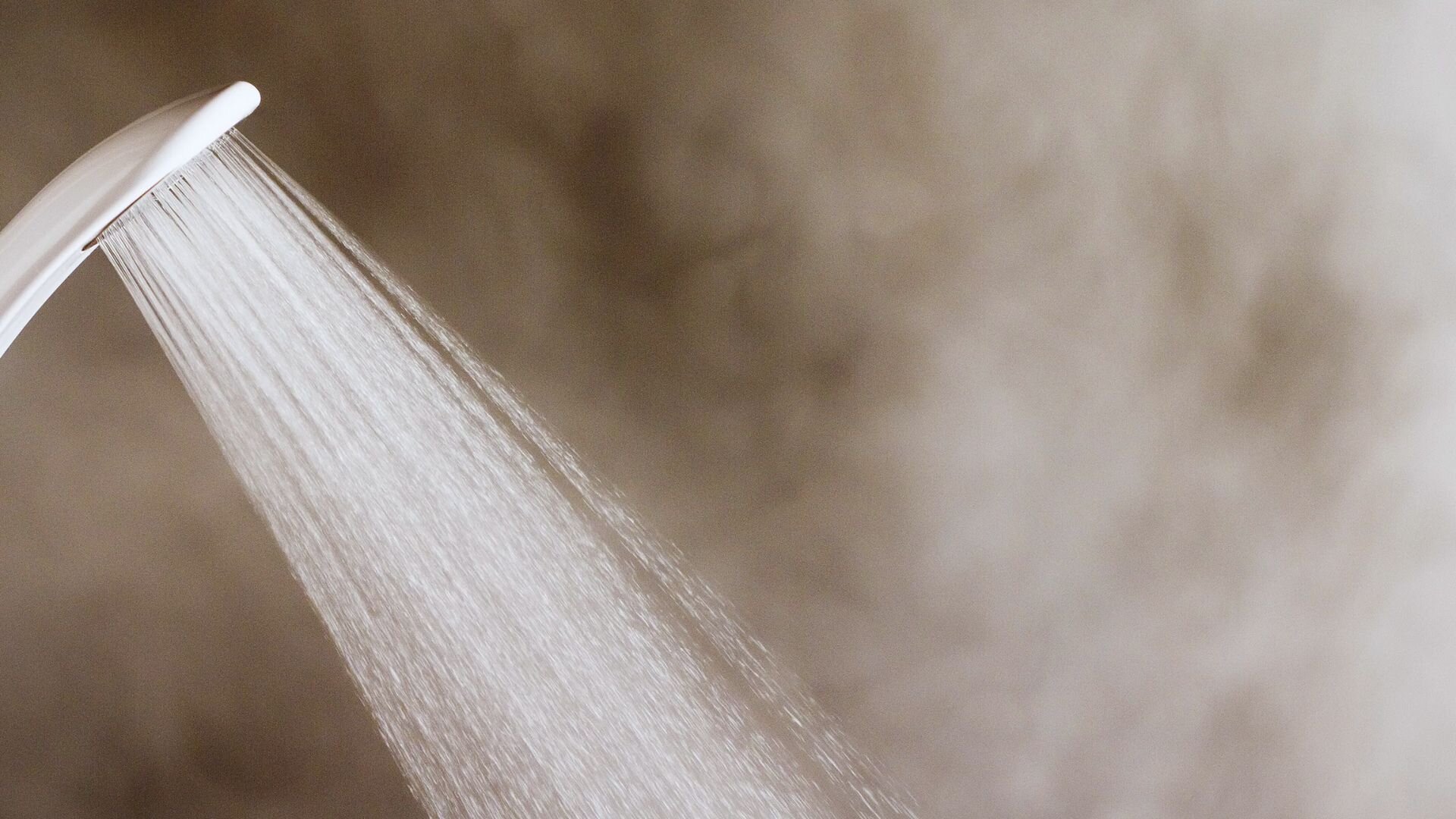
1. It Uses A Green Energy Source
If you’re environmentally conscious yet don’t want to miss out on the benefits of hot water, insulating a solar hot water system may be the right thing to do. Besides, it can effectively reduce greenhouse gas emissions (like carbon dioxide) and reduce your carbon footprint to a great extent.
A gas or electric-powered water heater (that runs on fossil fuels) can increase your yearly carbon footprint by almost twice!
2. Helps Reduce Energy Bills
With a solar water heater, you practically don’t need to pay any ‘bill’ to heat water. You can significantly reduce your energy bills- all you need is the sun’s renewable energy!
Sure, these systems come with their maintenance requirements, but they are generally easy to care for. Their maintenance charges can be way less than paying for hefty electrical or gas heating bills, especially if you consume more hot water.
3. Works Even During Power Cuts
Solar water heating systems don’t rely on electricity, so your hot water supply stays uninterrupted during power cuts. This is particularly handy if your area often faces outages. Plus, the insulated storage tanks keep water hot for longer.
4. More Efficient Than Solar Power Systems
A solar hot water system will provide better overall efficiency if you want to generate solar power to heat only water. However, solar systems are typically meant to generate thermal power for entire homes or buildings.
For instance, for every 100 units of solar energy the collector captures, only 15 to 20 are converted into heat in a solar power system. On the other hand, solar hot water system collectors can convert up to 80 to 90 units, resulting in better energy efficiency.
Besides, a compact solar water heater system is better for smaller roofs to keep the roof space functional while generating more heat.
5. Adds To The Value Of Your Home
Installing a solar water heater doesn’t just save on energy bills; it also boosts your home’s value. This appeal can attract environmentally-conscious buyers, increasing your property’s worth.
Besides, some local building codes and regulations require installing a solar hot water system. You may also be eligible for certain Government rebates and compensations, which can cover the installation cost to a certain extent.
What To Consider Before Switching To A Solar Hot Water System?
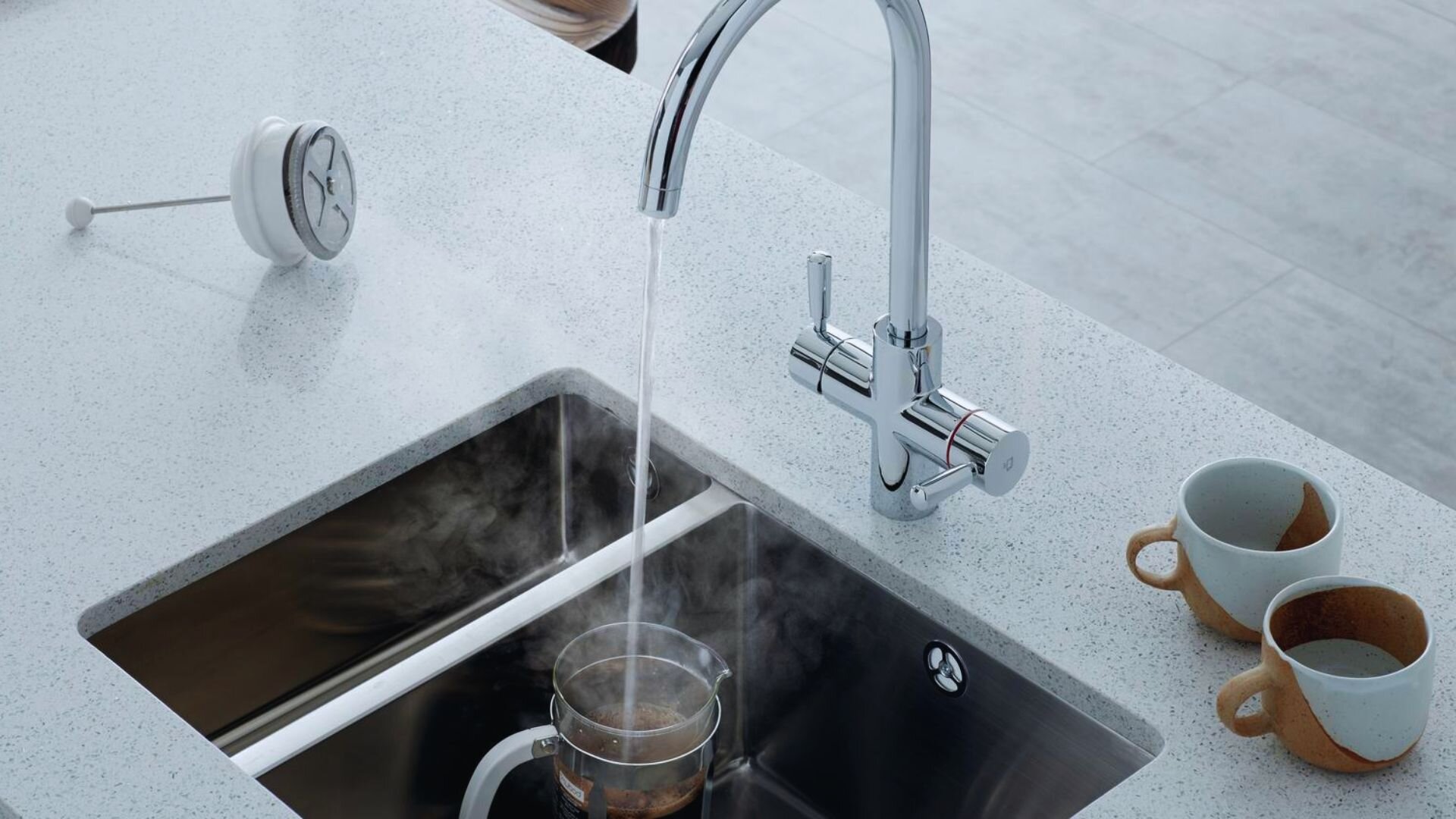
1. Installation Cost
A solar hot water system’s average cost can be between $3,000 and $7,000. However, the price will significantly vary depending on your location and the exact model you opt for. Further, the labour charges and repositioning of the system will add up, generally making a solar unit more expensive than a traditional one.
2. Sustainability
A solar hot water system works best when it receives plenty of sunlight at all times. So, if you live in an area that’s frequently overcast, it may not be the right choice. That said, such systems can still ‘extract’ heat from the sun’s energy on cloudy days, as the radiation doesn’t really get blocked. But it may take more time to heat the water.
Remember, solar hot water systems need to be maintained regularly to keep them properly functional.
How To Choose The Right Solar Hot Water System?
Here are a few factors to consider when choosing the right system for your needs:
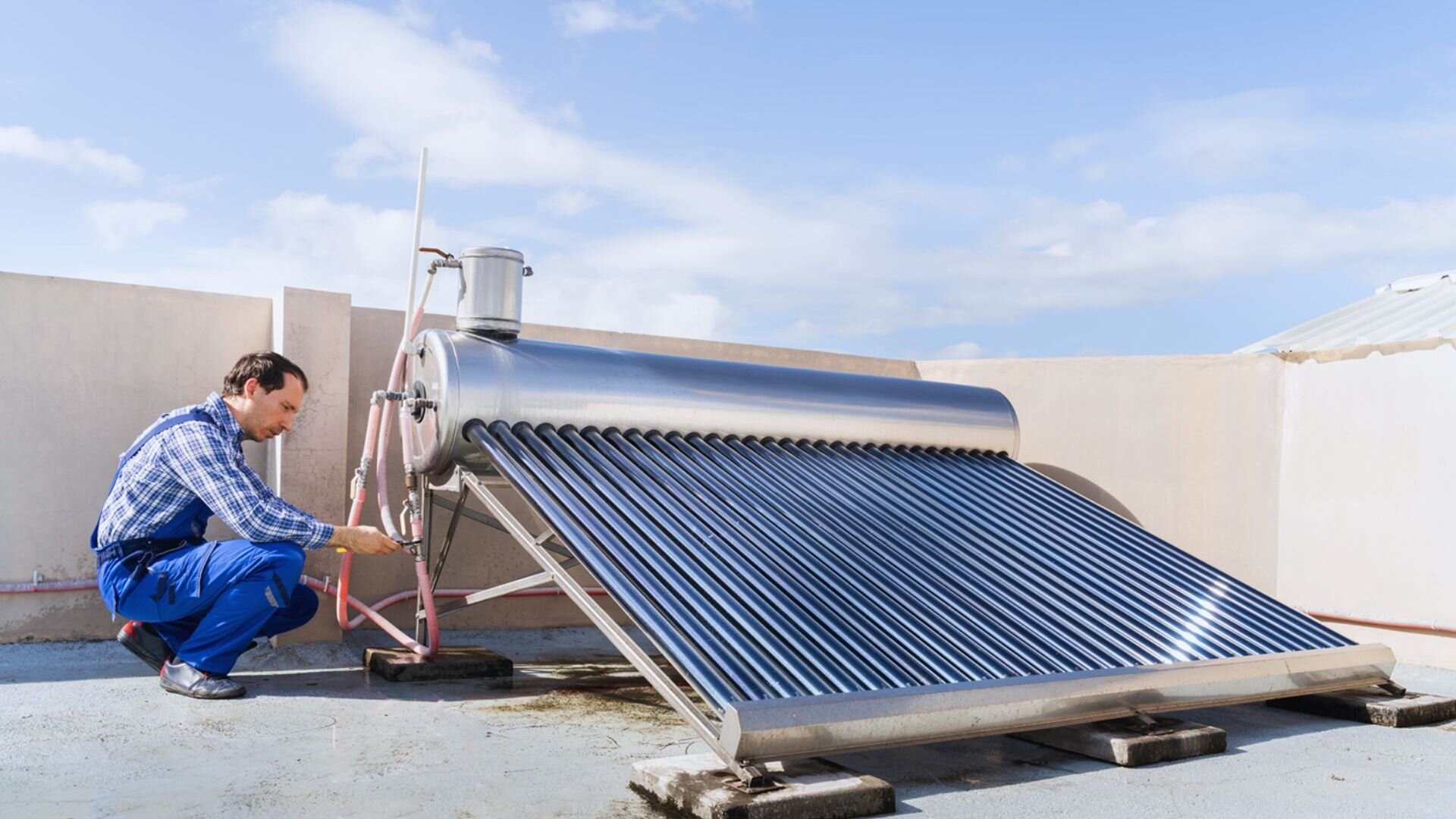
1. Collector
While flat-plate collectors are better suited for warm climates where the water doesn’t freeze, heat pipes collectors can prevent the water from freezing during the cold. Apart from that, you can opt for other units with heat pump systems or additional power sources, though they may use some secondary power source.
2. The Storage Tank
The different storage tanks include:
- Flat plate- rectangular tank mounted on top of the solar collectors
- Thermosyphon- vertical tank where hot water sits on top and cold water on the bottom
- Split tank- big tanks storing both hot and cold water connected by heat pumps
- Heat pump - uses heat from the air when solar energy isn’t available
- Indirect- used in colder climates to keep water from freezing
3. Size
A typical solar hot water system for a residential property has a collector area of 10 to 40 sq metres and a 150 to 400 litres storage tank. Still, the actual size will depend on your household.
For instance, a household with only one or two people can opt for a collector area of 10 to 20 square metres and a tank size of 150 to 200 litres. However, a larger household may need a 300 to 400-litre storage tank and a collector area of 20 to 40 sq. metres.
It’s best to speak to a professional to determine the right size for your needs.
Installing A Solar Hot Water System
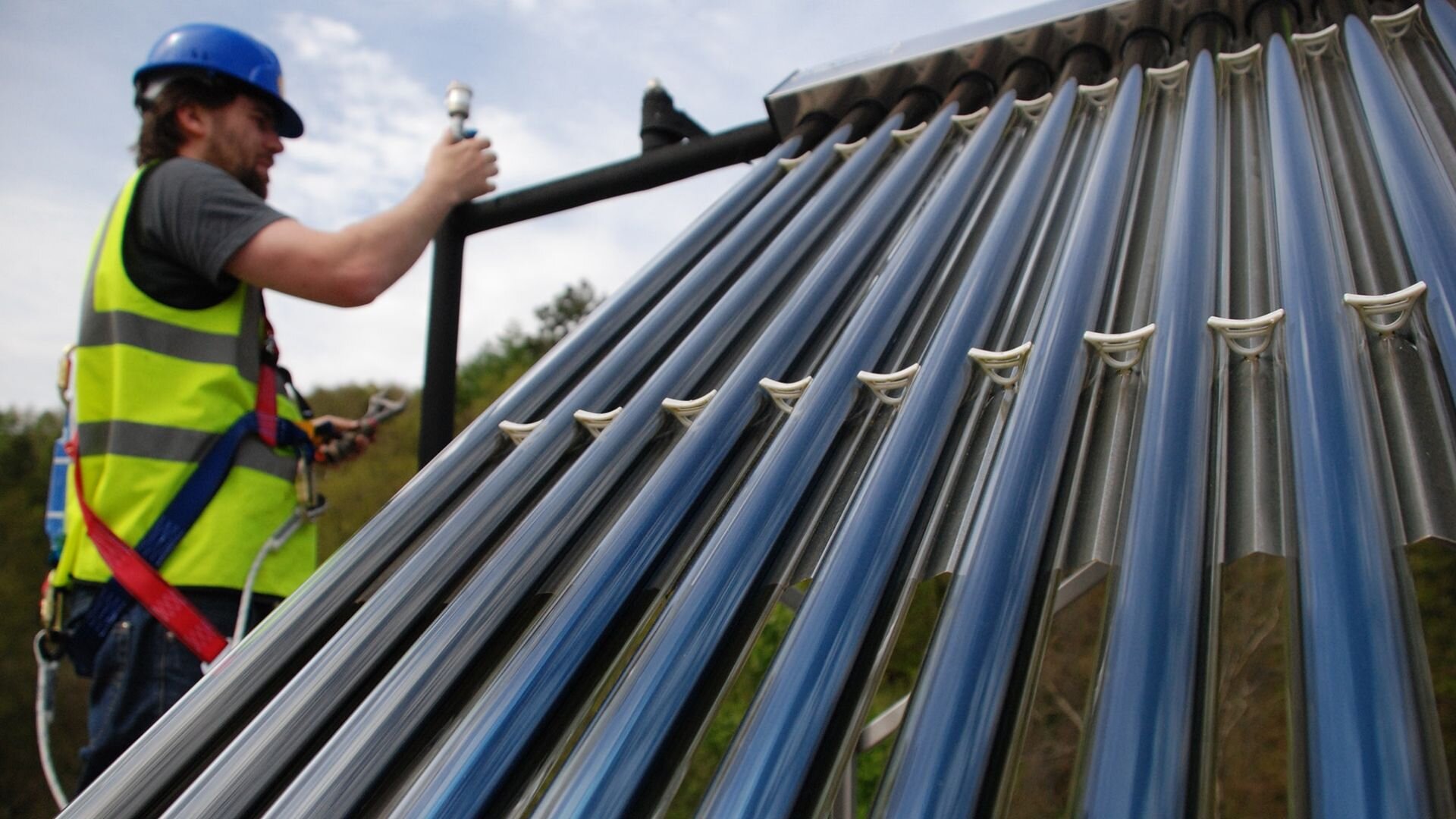
Setting up a solar hot water system requires a bit of technical know-how. You might need to modify parts of your roof and connect new piping. The exact installation process can vary based on the system model and your home’s layout.
Here’s a quick overview to give you an idea:
- Mounting the collector
- Installing the tank and heat exchanger
- Installing pipes and antifreeze liquid
- Installing transport pipes
- Installing the control system
- Insulating the unit to minimise heat loss
As for the cost, installing a hot water system can set you back by $3,000 to $7,000 on average, depending on the system and any separate arrangements you may have to make. However, the good news is that the Australian government facilitates rebates for properly installed and eligible systems that can offset the installation cost. Some of them include the following:
1. Small-Scale Technology Certificates (STCs)
STCs are tradable commodities that can be claimed depending on the size of the system and its locations. These can then be sold to energy retailers or brokers, who use them to meet their renewable energy target.
2. State Government Rebates
Some state governments, like the Victorian government, offer interest-free loans and rebates to eligible Australian households to encourage the use of renewable energy.
How To Maintain Your Solar Hot Water System?
At the DIY level, you can keep the collectors and the anode rod inside the tank clean to keep the system functional. Besides, the pipes and valves should be inspected regularly to detect and repair leaks immediately. Likewise, check the pump (if applicable) and monitor the temperature to ensure it’s working correctly.
However, getting the system regularly serviced according to the manufacturer’s instructions for deep cleaning and repair or replacements is crucial.
Making The Sustainable Choice: Solar Hot Water
Given the advantages of a solar hot water system, we’d say it’s time you make the much-needed switch! Solar panels and solar hot water collectors can significantly reduce your energy consumption. However, to ensure optimal performance, it’s crucial to have the system, including the hot water tank, installed correctly and maintained regularly. This way, you can efficiently manage your hot water usage and enjoy the full benefits of your investment.
Our licensed and trained plumbers can handle all types of solar hot water systems anywhere in Sydney, so speak with our team for more information or book an appointment!














